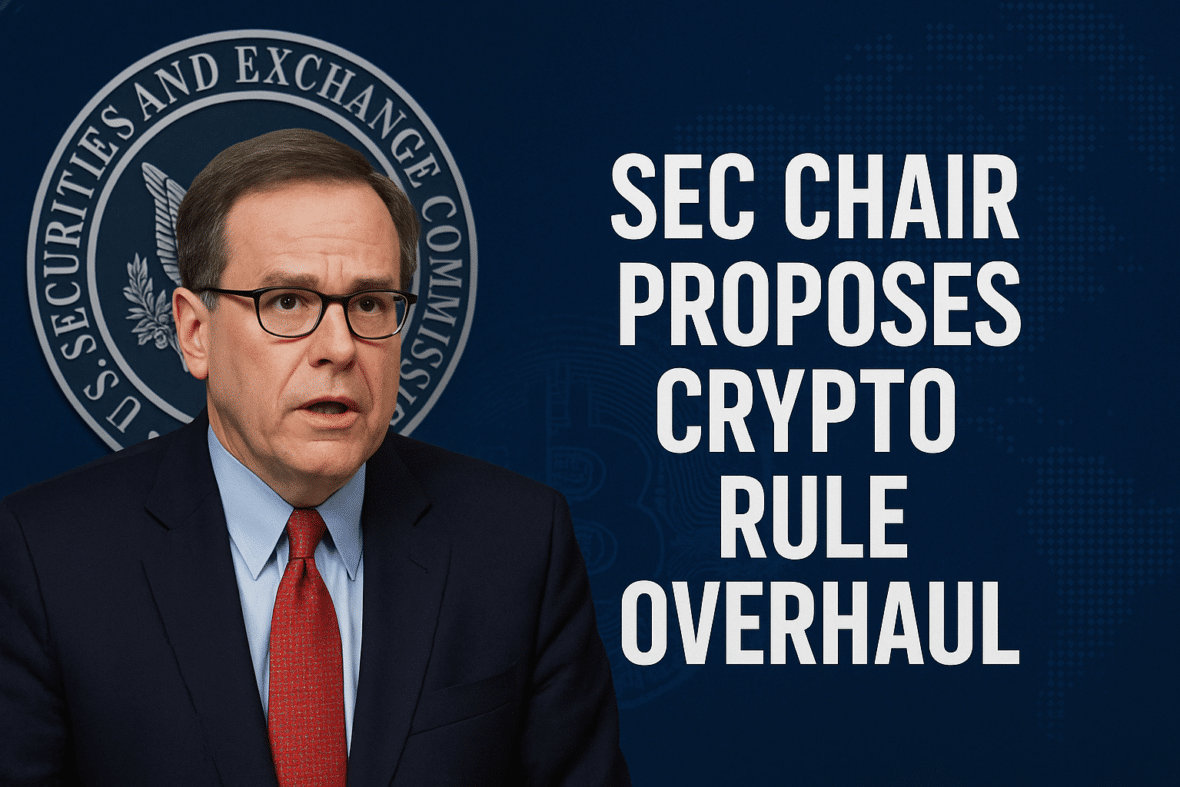SEC Chair Proposes Crypto Rule Overhaul to Curb ‘Regulation by Enforcement’

May 13, 2025 – Washington, D.C.
In a significant policy shift, U.S. Securities and Exchange Commission (SEC) Chair Paul Atkins has announced a sweeping proposal to revamp how the agency regulates the cryptocurrency industry—starting with new guidelines for token distributions and broader exemptions for compliant projects.
Speaking at the Digital Asset Policy Forum in Washington, Atkins outlined plans to move away from what he described as the SEC’s “regulation by enforcement” legacy. The new framework would provide clearer rules for initial token offerings and secondary market transactions, offering a path to compliance that doesn’t rely on retroactive legal actions.
“We must provide regulatory clarity before—not after—the fact,” Atkins said. “Innovation in the blockchain space should not be stifled by ambiguity or fear of prosecution.”
Key Components of the Proposal
Clearer Guidance for Token Distributions
The SEC will issue formal guidelines distinguishing between utility tokens and securities, focusing on the economic realities of the token rather than the broad application of the Howey Test. The goal is to give blockchain projects a way to launch tokens without triggering automatic securities status.
Safe Harbor Framework
Atkins is also reviving discussion around a “safe harbor” provision, which would allow crypto startups to operate for a limited time without full registration requirements—provided they meet transparency and investor protection standards.
Expanded Exemptions
The proposal includes consideration for new exemptions under Regulation D and Regulation A+, making it easier for crypto projects to raise capital legally while maintaining investor protections.
Public Comment Period
A 90-day public consultation period will begin later this month, inviting feedback from industry participants, investors, and legal experts.
Industry Reaction
The crypto community has largely welcomed the announcement, seeing it as a long-overdue step toward rational regulation.
“It’s a breath of fresh air,” said Caitlin Long, CEO of Custodia Bank. “This could be the beginning of a more mature, balanced approach to crypto oversight in the U.S.”
Crypto advocacy groups, which have long criticized the SEC for its lack of proactive rulemaking, praised Atkins’ remarks. Many pointed to the SEC’s recent legal losses and inconsistent enforcement as evidence that the current model was unsustainable.
What Comes Next
Atkins emphasized that the SEC will continue to pursue bad actors who engage in fraud or fail to provide adequate disclosures. However, under the new vision, law-abiding projects would have a clearer path forward—one not defined by fear of a surprise lawsuit.
“Regulation should not be a guessing game,” Atkins said. “Today, we begin a new chapter.”
The proposed overhaul signals a potentially pivotal moment in the U.S. approach to crypto regulation. If adopted, it could encourage domestic innovation while reducing the regulatory uncertainty that has driven many projects overseas.